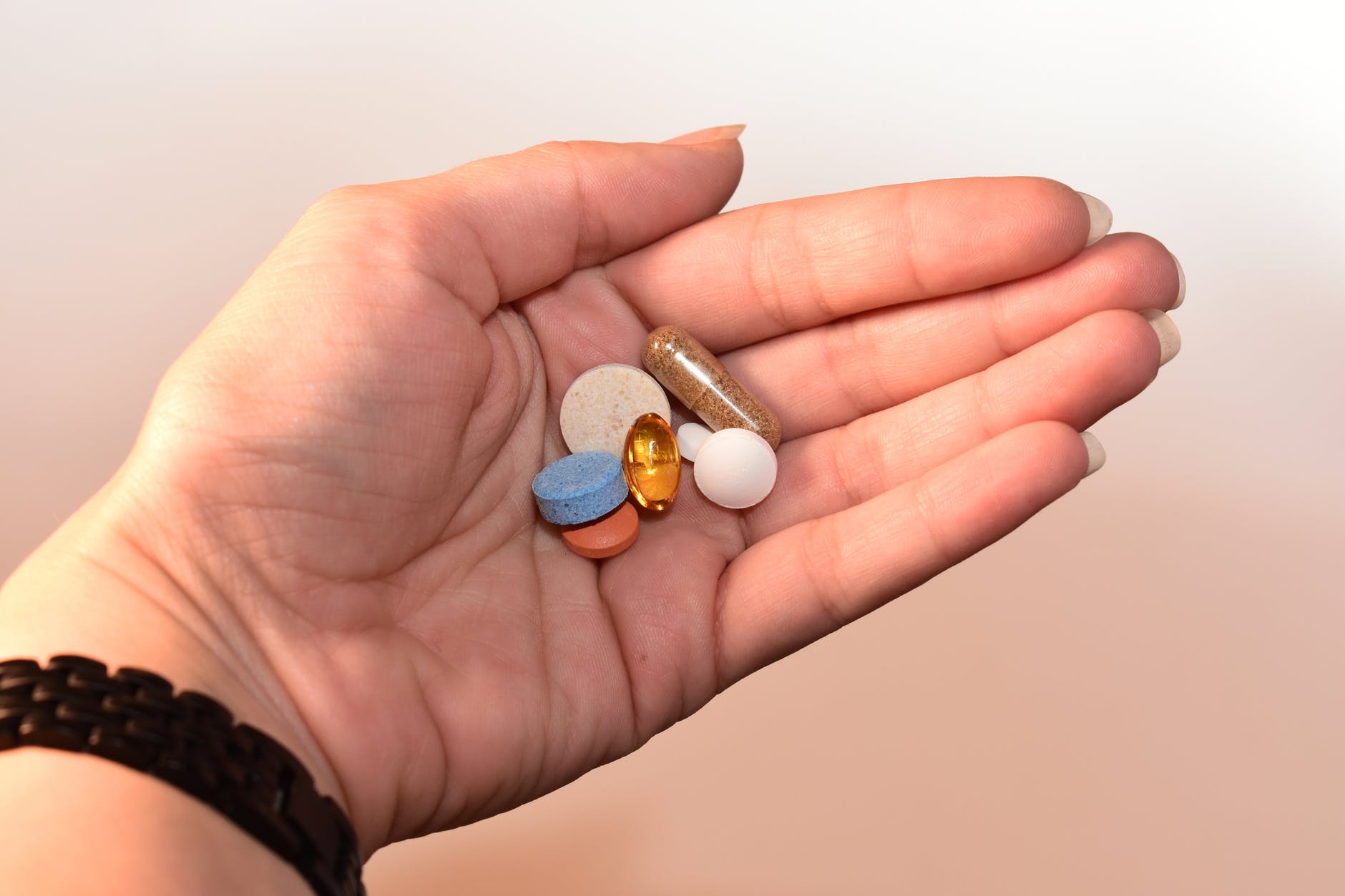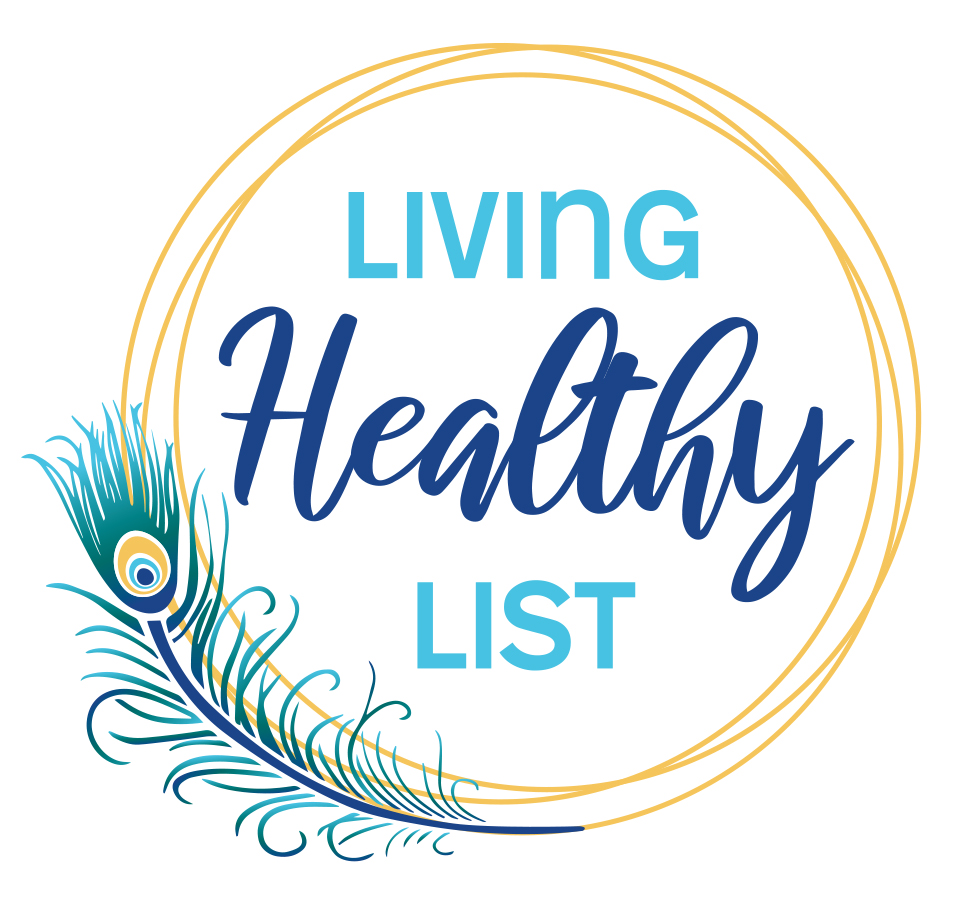Dietary Supplements
Should you take a dietary supplement? Your body requires a balance of macronutrients and micronutrients for optimal function. In a perfect world, you should be able to get most of the nutrients that your body needs from the food you eat.
That is easier said than done. Busy lifestyle, eating on the go, diets that eliminate entire food groups, and nutrient-depleted soils may make acquiring important nutrients an ongoing challenge.
Deciding what is best for you can be tough. The lack of hard scientific data on many dietary supplements makes it hard to give specific recommendations. There are many claims on the internet, but it is hard to separate truth from marketing.
Living Healthy List is here to help. Remember: Overcoming information overload on the internet is the core goal of Living Healthy List. This section will review dietary supplements and provide links to ways to obtain some of them including advice on what may be best for you. If you decide that you need a little guidance, we will help you find the right expert. That’s what we are all about here at Living Healthy List, helping you find what you need in order to live a healthy life!
Let’s Start With a Few Basic Concepts:

Macronutrients, are the caloric you need for your daily energy requirements are the building blocks of tissue development, fiber for microbiota, cholesterol for hormone production. We know them as carbohydrates, fat, and protein.
Micronutrients, which we will focus on in this section, are the vitamins and minerals and photo-nutrients that your body needs but in smaller amounts and contribute to things like hormone production, brain function, and immune function
Dietary supplements are a key component of many of our wellness routines. Just look in your medicine cabinet and count the number of random bottles of supplements you have accumulated. I bet half of them have expired and the others have no idea what they are for.
Additionally, the Recommended Dietary Allowances (RDA) for vitamins and minerals have been the same since the early 1940s. I’d say they are a bit outdated! Nutrition researchers of today generally agree that the RDAs fall far short when it comes to preventing chronic diseases, promoting vitality, and longevity.
Vitamin and mineral insufficiencies could be the cause of at least a contributing factor to many of the health issues we deal with today including but not limited to depression and anxiety.
Why Do We Take Dietary Supplements In The First Place?
Obviously, we believe that we need them. Maybe someone you know, love, or trust swears by a product and convinced you to try them. Perhaps you read about a supplement in a magazine, saw a commercial on television, or a fancy advertisement campaign on social media. (Don’t feel bad if you’ve succumbed to this, it happens to all of us.) Consider the source of the information. Taking a supplement that you may not have a complete understanding of the risks associated with their use could be detrimental to your health.
It is true that dietary supplements can be a great way to boost your nutrition and depending on your diet, lifestyle, and stage in life some dietary supplements will have advantages over others. Choosing the right supplements, however, is often overwhelming–there are lots of options and hundreds of internet sales pages full of confusing and conflicting information.
That’s where Living Healthy List comes in. We’re here to give you reliable information so you can make the best decisions for your health.
Statistics
- 9/10 ppl have some sort of nutritional deficiency
- 73% of supplement users take a multivitamin
- 2/3 Americans take dietary supplements every day
- 8/10 physicians recommend supplements to their patients
- 85% of seniors 65+ take supplements

What Are Supplements?
Dietary supplements include the 13 vitamins & 16 minerals your body requires to properly function. Additional supplements are herbs, essential oils, botanicals, amino acids, enzymes, and many other products. Some supplements, specifically vitamins, and minerals fill in the gaps where nutrition is lacking while others promote health and weight loss.
Scientific evidence shows that some dietary supplements are beneficial for overall health and for managing some health conditions. Calcium, a mineral and vitamin D, for example, are important for keeping bones strong and reducing bone loss. Omega-3 fatty acids from fish oils might be beneficial for heart disease and brain function.
Herbs such as echinacea and essential oils, specialty products like glucosamine and probiotics and weight loss supplements such as whey protein powder and energy bars need more scientific study to determine their value.
However, there is plenty of anecdotal evidence these supplements are beneficial. Herbs, essential oils, and botanicals, the therapeutic plant extracts, have been used for hundreds of years in Eastern Medicine. Considered by some as the original pharmacy there are records of people therapeutically using botanical extracts since the beginning of recorded history. Many supplement companies have research that may or may not have been done by a nonbiased third party. Regulations ensure that herbal supplements meet manufacturing standards but don’t guarantee that they’re safe or effective. Do your homework before you buy.
Where Do Supplements Show Up In Your Life?
For most of us, dietary supplements show up in our lives every day. Do you drink a detox tea or drink a protein shake at breakfast? Ashwagandha Tea Perhaps? Supplements come in a variety of other forms such as pills, powders, drinks, shakes, bars, essential oils, balms, and meal replacements. More recently we’ve seen them in liquid form and taken with a dropper.
What You Should Consider Before You Take Supplements?
Consult your physician before you start taking dietary supplements.
Most of us do not realize that by self-prescribing over-the-counter supplements that our body can get relatively off balance. Vitamins and supplements are most effective when tailored to help you fill gaps in your diet or reach health goals. Many physicians recommend blood tests to discover where you are deficient before recommending supplements. You are different from everyone else in the world, so your supplements should be, too!
Other Things To Consider
- Medications: Some supplements may cause an adverse reaction to the medications you take.
- Diet: Do you follow a vegan or any type of elimination diet? If you habitually eating a way that removes entire food groups from your diet you may be deficient in nutrients that your body needs. For example, everyone on a vegan diet must monitor their levels of vitamin B12.
- Lifestyle: Unmanaged stress and inadequate sleep is the reason many people start taking supplements. Is there a natural way to address these concerns? Daily self-care can help.
- Exercise: Athletes may benefit from certain types of supplementation. However, it is vital to consult with a doctor or sports nutritionist first.

Lab Tests: A True Measure Of Your Overall Health
There are no supplements that can make up for a poor diet, lack of exercise, high levels of stress, and inadequate sleep. If you don’t eat a nutritious variety of foods, some supplements might help you get adequate amounts of essential nutrients.
How do you know the levels of nutrients in your body? You don’t! The results of lab tests provide bio-markers (measurable levels) so you know what you are working with and address your body needs with the science behind proper dietary supplementation that targets your nutritional needs. For certain health conditions, there are specific supplementation protocols.
What Types Of Lab Tests Are There?
There are a number of different tests that your physician can order and a number of reputable companies that will mail you a do-it-yourself lab kit that you do at home. These are some of the types of tests that you might want to ask for.
Basic Nutritional Panel: measures a combination of vitamins, minerals, and antioxidants; offering an evaluation of nutrients that could be impacting your mental and physical well-being. A Nutritional panel consists of the following tests:
- Complete Blood Count (CBC)
- Comprehensive Metabolic Panel (CMP)
- Iron and Total Iron Binding Capacity (TIBC)
- Vitamin B12 (Cobalamin)
- VITAMIN D.
- VITAMIN C.
Thyroid Function
Weight gain, fatigue, brain fog are all symptoms many women suffer with and often rely on herbal supplements to help them cope. However, these are also indications of hypothyroidism in which the thyroid, slows down or stops making the hormone thyroxine that helps keep your metabolism up to speed. Women are 2 to 10 times more likely than men to develop hyperthyroidism which is a medical condition and should be treated with the consultation of a medical professional.
There are a number of herbal thyroid supplements available on the market some of which may contain actual thyroid hormones. A study published in the journal Thyroid in 2013 found that nine out of 10 supplements marketed for thyroid health and support contained real hormones. Without an understanding of how these herbal supplements work they may have a negative effect on your health especially if you do not have a thyroid issue. Find out first by having a thyroid panel test that includes: T3, T3RU, T4, T7and TSH.
Blood Sugar & Prediabetes Screening
It is important for your overall health and wellbeing to know if you have sugar imbalances, are prediabetic and have a risk for diabetes. There are several tests including fasting glucose, 2-hr postprandial, Random, and Hemoglobin 1C. Fasting glucose is the most common. However, its used more often as a diagnostic rather than for the prevention of prediabetes /diabetes.
A healthy diet, physical activity, and maintaining a healthy weight are the most important parts of diabetes prevention. Supplements may help you to lose or maintain a healthy weight but there is no evidence that dietary supplements including herbal and botanical control blood sugar levels, reduce resistance to insulin, and reverse diabetes. If it sounds too good to be true, it is!
Inflammation
Inflammation is your body’s process of fighting infections, injuries, and toxins, in its attempt to heal itself. Chronic inflammation, which is thought to be the cause of many chronic illnesses and degenerative diseases, is when this natural response continues and doesn’t turn off. An untreated infection or injury, autoimmune disease, or environmental pollutant can cause chronic inflammation.

Common Symptoms Of Chronic Inflammation Include:
- Fatigue
- Fever
- Mouth Sores
- Rashes
- Abdominal Pain
- Chest Pain
There are a number of natural supplements that are suggested to fight chronic inflammation for you to research. Read more about inflammation in Is Your Lifestyle Killing You – The 8 Simple Steps for Lasting Weight Loss and Optimal Health” by Dr. Karen Wolfe
Cholesterol
Fasting Lipoprotein Profile (cholesterol) is a blood test that measures your total cholesterol, LDL (bad) cholesterol and HDL (good) cholesterol. Its recommended that you have a fasting lipoprotein profile taken every four to six years, however, if your healthcare provider determines that you’re at an increased risk for heart disease or stroke You may need to be tested more frequently.
Quality Matters
There is a difference between high-quality supplements and those that you pick up at your local supermarket or drugstore. The benefits and results you may experience depend on the quality of the products you take. Other reasons quality matters.
- You get what you expect. Reports have shown that there are products on the market that don’t contain the ingredients advertised on the label. Quality products are tested and given a seal of approval.
- In addition to the ingredients being present in the supplement, it is vital that they are present in the correct amount. Too little and it may have no effect on your health and a waste of money, too much and it could be harmful.
- Feel confident that your supplements don’t contain unwanted ingredients that may have a negative effect on your health.
Examples:
- Heavy metals (for example in fish oils)
- Pesticides
- Toxins like mold or mildew
- Pharmaceuticals
Trust that the ingredients in the supplement is readily absorbed in the body. If not, they are more likely to pass right through you without having any effect on your health.
Supplement Companies and MLM’s
Let me start out by saying this, “I’m not anti-MLM and I’m no stranger to them.” I have been certified with Optavia, occasionally buy Melaleuca, and use products by Purehaven, Beachbody, and doTERRA essential oils. I get it, I understand.
I believe that most of the Health & Wellness based MLM (multi-level marketing or network marketing) companies, are genuine and trying to do the right thing for their customers. It’s exciting that health and wellness is a topic of conversation.
MLM’s are so popular now because there is more demand for their products. We are more interested in our health, losing weight, and honestly, we are looking for the easiest ways to do it. That’s where these supplements come in. We want a quick fix and MLM’s deliver! Literally, to your front door.
It’s a lot easier to open a pouch, add water and shake for an instant smoothie than it is to gather a dozen ingredients, chop, measure, insert into the blender, mix, pour, drink, and… then wash the blender.
As I was writing this article it was really difficult to figure out which were the best products, whether they were efficacious and why you should choose one over the other excluding price.
Product testing and transparency is vitally important. Does the company provide research information? Are the company’s products third party tested?
All that said, it is still important that you do your due diligence. In my experience, the initial product education for independent sales representatives is lacking. The focus is on selling product and growing a team. I attended two national conferences and not one session of product education offered.

When it comes to MLM products work with someone you trust and who knows the nutrition and the science of the products. How the products should be taken and if there are more than one in which order they should be taken. The individual packaging may not have that information.
I recommend that you ask lots of questions, read through the research, and talk to the scientists. Again, a reputable company will have its research readily available. Several companies that I am familiar with have YouTube Channels and Podcasts for your education.
Again, do your due diligence, go for longevity instead of short-term results.
Safety And Risk
Many dietary supplements contain active ingredients that can have strong effects in the body. Always be aware of unexpected side effects, especially when taking a new product.
Supplements are more likely to cause side effects if you take them in lieu of prescribed medication or when taking several supplements in combination. Dietary supplements can interact with prescription drugs in ways that might cause problems. For example, certain supplements can increase the risk of bleeding so it is critical to understand any possible adverse interactions. If you choose to use any dietary supplements it is important to take only them as directed.
Before you take any supplements, it is critical to identify the ingredients, where they are from, and how they are made.
Three key things to know:
- Sourcing: Where are the ingredients from. Are they derived natural or are they synthetic? Supplements that are made from natural ingredients and whole-food sources will help you get the most nutrition from your supplements.
- Absorption: How are the supplements absorbed in your system? Are they fast-acting, and short-lasting or do they provide slow-release? Supplements that offer a steady boost of energy over time are a healthier option as they will give you a sudden rush of energy followed by a crash. Additionally, whether a product is natural or synthetically derived can affect absorption.
- Manufacturing: The FDA does not review dietary supplements before they get on the market. A company is not obligated to do any testing or to provide evidence that their product is safe or effective. They only need to show that they follow Current Good Manufacturing Practice (CGMP) guidelines. I don’t mean for this to scare you only to educate you.
Reputable companies will elect for voluntary third-party certification to their manufacturing or ingredient-sourcing standards.
The ingredients and any research for any reputable dietary supplement should be easy to find. If not, consider something else.
There are several independent organizations that offer quality testing and allow products that pass their tests to display their seals of approval. These seals of approval assure that the product was properly manufactured, contains the ingredients listed on the label, and does not contain any harmful levels of contaminants. They do not guarantee that a product is safe or effective.
Organizations that offer this quality testing
- Consumerlab.com $47.40 annual fee to access the entire reports.
- NSF certification
- U.S. Pharmacopeia

